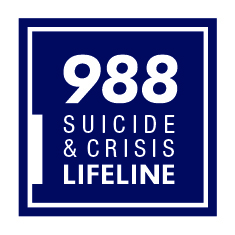Your teenager is acting mopey and you might be scratching your head and asking “is this regular teenage mopiness or something more serious?”.
Teenage depression is a growing concern in today’s society, with more and more young people experiencing feelings of sadness, hopelessness, and a loss of interest in activities they once enjoyed. If you’re a parent, teacher, or friend of a teenager, it’s important to be able to recognize the signs of depression so that you can help them get the support they need.
These are the most common warning signs of teenage depression and ways you can support your struggling teen.
Common Signs of Depression in Teens
Changes in mood and behavior:
One of the most obvious signs of depression is a change in mood or behavior. Teenagers with depression may seem irritable, angry, or moody, and they may withdraw from friends and family. They may also lose interest in activities they once enjoyed and become isolated.
Sudden change in school performance:
If your teenager suddenly goes from a straight A student to someone who is barely scraping by in their classes, it might be a symptom of internal struggles and feelings of apathy that can come with depression.
Irregular sleep patterns:
Teenagers with depression may experience changes in their sleep patterns, such as difficulty falling asleep, waking up frequently during the night, or sleeping too much. They may also feel tired and have difficulty getting out of bed in the morning.
Appetite changes:
Depression can also affect a teenager’s eating habits. They may lose their appetite and lose weight, or they may eat more and gain weight.
Lack of motivation:
Teenagers with depression may have trouble finding the motivation to do things they once enjoyed or to complete tasks they need to do. They may struggle with focus and attention, and may feel overwhelmed by even simple tasks. Chores or homework that once were easy may suddenly feel like an overwhelming burden to your teen.
Negative thoughts:
Teenagers with depression may experience negative thoughts, such as feeling guilty, worthless, or hopeless. They may also have thoughts of death or suicide.
Physical symptoms:
Depression can also cause physical symptoms, such as headaches, stomachaches, and muscle aches. These symptoms may not have an obvious cause and can be a sign that something more serious is going on.
Dark or death related humor:
Dark humor is very common among teens, so it may not always be an indication of depression. But if your young adult is making jokes or comments about death or wishing they were dead, it may be an indication of their internal thought life.
Indications of self harm:
Self harm is often a sign of depression in teenagers. Your teenager may not be sharing the fact that they are self-harming or want to self-harm, so it is important to look out for other signs, such as recurring scars on the arms and legs or unexplained bruises.
Suicidal thoughts or ideations:
If your teenager is experiencing suicidal thoughts or ideations, they likely aren’t sharing them with anyone. If you are concerned about the safety of your teenager, call the National Suicide Hotline at 988.
Identifying depression in teens can be difficult because your teenager is already going through huge changes in their brain chemistry and their body. Some of these symptoms are just normal territory that can come with young adulthood.
But when these indications and symptoms start to stack up, it might be time to check in on your teenager and offer them support.
Ways to Support a Teen Struggling with Depression
It’s important to remember that depression is a treatable condition, and the earlier it’s addressed, the better support you will be able to offer your teenager. If you suspect that a teenager is struggling with depression, the first step is to talk to them and let them know that you’re there to support them. Encourage them to seek help from a mental health professional, and offer to help them find a therapist or counselor.
Depression is an increasingly common illness, so it is vital that you do not shame or guilt your teenager for what they are feeling. Depression is already shrouded in shame and fear, so your teen needs to hear your support and encouragement and understanding in their depression.
If you’re concerned about a teenager you know, don’t hesitate to reach out and offer your support. With the right help, teenagers can recover from depression and go on to lead happy, healthy lives.
Need Help? Know Someone Who Does?
Contact the 988 Suicide and Crisis Lifeline if you are experiencing mental health-related distress or are worried about a loved one who may need crisis support.
Call or text 988 | Chat at 988lifeline.org
Connect with a trained crisis counselor. 988 is confidential, free, and available 24/7/365.
Visit the 988 Suicide and Crisis Lifeline for more information at 988lifeline.org
We know that you walk a careful balance when it comes to parenting your kids and teens through the 21st century.
Whether you are facing a tough conversation with your child and don’t have the words to begin, or you’re getting a jumpstart on the teenage years ahead, Axis is for you.
Join us as we parent together from elementary to high school and beyond.Written in partnership with Reach The Lost
